4-(1,3-dioxo-1,3-dihydro-2h-isoindol-2-yl)butanoic acid
Modify Date: 2024-01-03 19:44:15
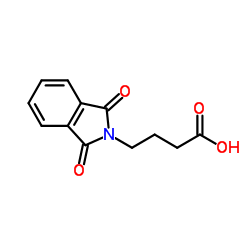
4-(1,3-dioxo-1,3-dihydro-2h-isoindol-2-yl)butanoic acid structure
|
Common Name | 4-(1,3-dioxo-1,3-dihydro-2h-isoindol-2-yl)butanoic acid | ||
|---|---|---|---|---|
| CAS Number | 3130-75-4 | Molecular Weight | 233.220 | |
| Density | 1.4±0.1 g/cm3 | Boiling Point | 442.1±28.0 °C at 760 mmHg | |
| Molecular Formula | C12H11NO4 | Melting Point | 119-121ºC | |
| MSDS | N/A | Flash Point | 221.2±24.0 °C | |
Use of 4-(1,3-dioxo-1,3-dihydro-2h-isoindol-2-yl)butanoic acid4-(N-Phthalimidoyl)butanoic acid (compound FB) is a hapten with a carboxyl group at the end of its spacer arm, suitable for reacting with free amine groups of proteins. 4-(N-Phthalimidoyl)butanoic acid can be combined with carrier proteins and used in antigen design[1]. |
| Name | 4-(1,3-Dioxo-1,3-dihydro-2H-isoindol-2-yl) butanoic acid |
|---|---|
| Synonym | More Synonyms |
| Description | 4-(N-Phthalimidoyl)butanoic acid (compound FB) is a hapten with a carboxyl group at the end of its spacer arm, suitable for reacting with free amine groups of proteins. 4-(N-Phthalimidoyl)butanoic acid can be combined with carrier proteins and used in antigen design[1]. |
|---|---|
| Related Catalog | |
| References |
| Density | 1.4±0.1 g/cm3 |
|---|---|
| Boiling Point | 442.1±28.0 °C at 760 mmHg |
| Melting Point | 119-121ºC |
| Molecular Formula | C12H11NO4 |
| Molecular Weight | 233.220 |
| Flash Point | 221.2±24.0 °C |
| Exact Mass | 233.068802 |
| PSA | 74.68000 |
| LogP | 1.58 |
| Vapour Pressure | 0.0±1.1 mmHg at 25°C |
| Index of Refraction | 1.605 |
CHEMICAL IDENTIFICATION
HEALTH HAZARD DATAACUTE TOXICITY DATA
|
| Hazard Codes | Xi: Irritant; |
|---|---|
| HS Code | 2925190090 |
| Precursor 9 | |
|---|---|
| DownStream 10 | |
| HS Code | 2925190090 |
|---|---|
| Summary | 2925190090 other imides and their derivatives; salts thereof VAT:17.0% Tax rebate rate:9.0% Supervision conditions:none MFN tariff:6.5% General tariff:30.0% |
| MFCD00196079 |
| 4-(1,3-dioxoisoindol-2-yl)butanoic acid |
| 4-(1,3-DIOXO-1,3-DIHYDRO-2H-ISOINDOL-2-YL)BUTANOIC ACID |
| 2H-Isoindole-2-butanoic acid, 1,3-dihydro-1,3-dioxo- |
| 4-Phthalimidobutyric Acid |
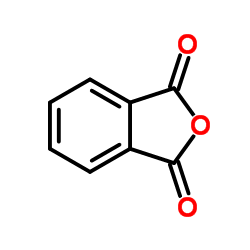 CAS#:85-44-9
CAS#:85-44-9 CAS#:56-12-2
CAS#:56-12-2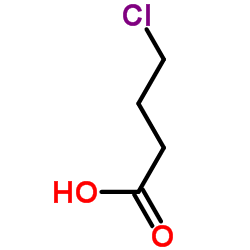 CAS#:627-00-9
CAS#:627-00-9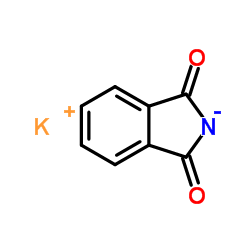 CAS#:1074-82-4
CAS#:1074-82-4 CAS#:22509-74-6
CAS#:22509-74-6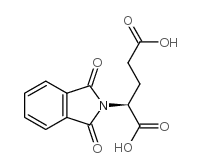 CAS#:340-90-9
CAS#:340-90-9 CAS#:88-99-3
CAS#:88-99-3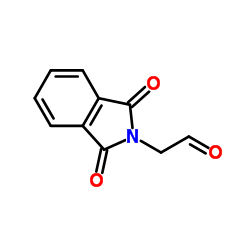 CAS#:2913-97-5
CAS#:2913-97-5 CAS#:16011-10-2
CAS#:16011-10-2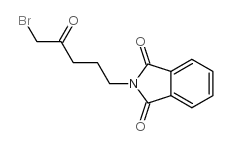 CAS#:41306-64-3
CAS#:41306-64-3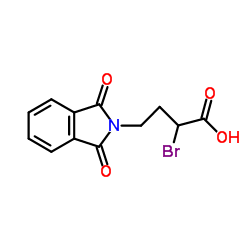 CAS#:35197-64-9
CAS#:35197-64-9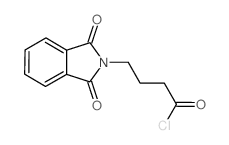 CAS#:10314-06-4
CAS#:10314-06-4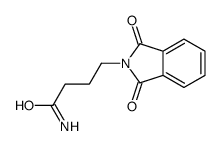 CAS#:3459-33-4
CAS#:3459-33-4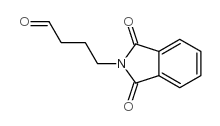 CAS#:3598-60-5
CAS#:3598-60-5 CAS#:3589-45-5
CAS#:3589-45-5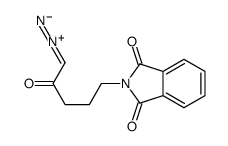 CAS#:84461-00-7
CAS#:84461-00-7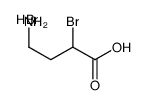 CAS#:94106-03-3
CAS#:94106-03-3 CAS#:40557-20-8
CAS#:40557-20-8